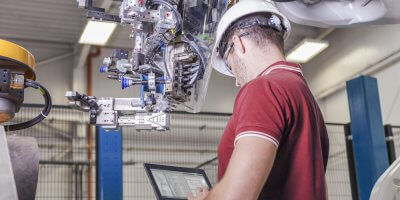
Today’s buildings are smart and can create interesting ad, sales, and service opportunities for companies. Source: Shutterstock
Smart facilities create new and interesting business opportunities
OFFICES and factories in today’s day and age are increasingly morphing into ‘smart facilities’.
They’re using sensors across the length and breadth of the facilities to capture data and movements to improve safety, security, and overall comfort.
Accelerating technology innovations are helping create intelligent solutions to help develop smarter and more responsive buildings that are self-aware and in-tune with the needs of its occupants.
While the immediate benefits of such “high-tech” buildings are that energy and resource wastages can be minimized and uptime (through predictive maintenance) can be maximized, the reality is that they also create exciting new business opportunities.
The few thousand sensors that modern-day buildings have these days collect a lot of data that can help facilities managers do interesting things. Here are a few examples:
# 1 | Advertising opportunities
Using sensors, facilities managers can collect data via the internet of things (IoT) to help understand what areas are most crowded, at what times, and gain an insight into the behavior of those walking into and out of the buildings.
As a result, with a little context, they’re able to understand those that live or work in those facilities — which helps create audience categories (using only non-personally identifiable information) which can be used for advertising.
Using screens, facilities managers could advertise to those in the building in the future.
Of course, this would require the permission of the occupants, but with advertising revenues potentially offsetting the maintenance fee charged by the facility managers, the model could be financially rewarding for everyone involved.
# 2 | Extended maintenance contracts
Using data from sensors, especially in commercial buildings, facilities managers are not only able to track what goes on in common areas of the structure but also in private areas.
As a result, facilities managers could be in a position to provide extended maintenance contracts to tenants and owners — proactively preventing or quickly fixing plumbing, electrical, and air conditioning issues as and when needed.
Further, given that the facilities managers have access to usage data for each unit in the structure, they could use that data to competitively price the contracts while also guaranteeing themselves additional revenues for the foreseeable future.
# 3 | Advisory and consulting services
Smart facilities managers can use the data that they get from their buildings to create digital twins and artificial intelligence (AI) models to study consumption patterns in different kinds of set-ups.
Digital twins could also help enterprises or large-scale tenants looking to invest in designing smart offices to get a headstart with their projects.
Further, AI models could help facilities managers create reports that help owners and tenants manage resources and optimize their own use.
All of these services are additional services that facilities managers would either earn compensation for performing — as a consultant or advisor — or at least gain them an edge over facilities in the neighborhood.
READ MORE
- Ethical AI: The renewed importance of safeguarding data and customer privacy in Generative AI applications
- How Japan balances AI-driven opportunities with cybersecurity needs
- Deploying SASE: Benchmarking your approach
- Insurance everywhere all at once: the digital transformation of the APAC insurance industry
- Google parent Alphabet eyes HubSpot: A potential acquisition shaping the future of CRM






